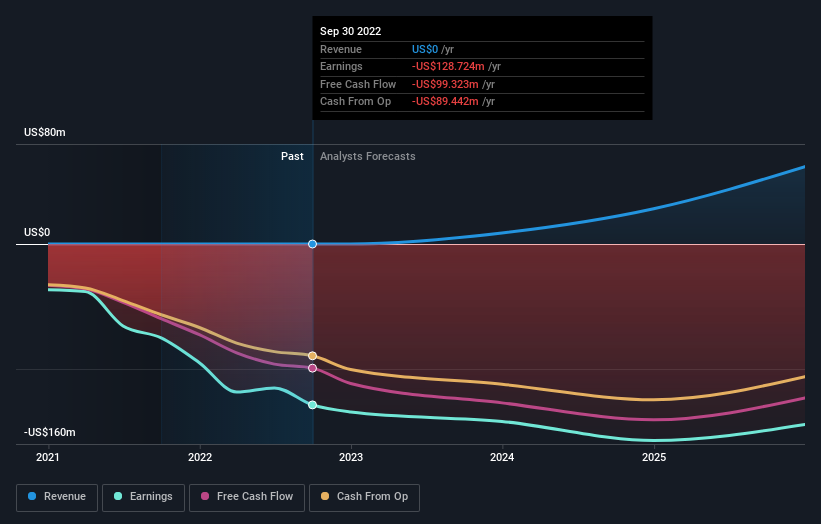- United States
- /
- Life Sciences
- /
- NasdaqGM:QSI
Institutions along with individual investors who hold considerable shares inQuantum-Si incorporated (NASDAQ:QSI) come under pressure; lose 12% of holdings value

If you want to know who really controls Quantum-Si incorporated (NASDAQ:QSI), then you'll have to look at the makeup of its share registry. With 40% stake, individual investors possess the maximum shares in the company. In other words, the group stands to gain the most (or lose the most) from their investment into the company.
While institutions, who own 33% shares weren’t spared from last week’s US$42m market cap drop, individual investors as a group suffered the maximum losses
Let's delve deeper into each type of owner of Quantum-Si, beginning with the chart below.
View our latest analysis for Quantum-Si

What Does The Institutional Ownership Tell Us About Quantum-Si?
Institutional investors commonly compare their own returns to the returns of a commonly followed index. So they generally do consider buying larger companies that are included in the relevant benchmark index.
Quantum-Si already has institutions on the share registry. Indeed, they own a respectable stake in the company. This implies the analysts working for those institutions have looked at the stock and they like it. But just like anyone else, they could be wrong. If multiple institutions change their view on a stock at the same time, you could see the share price drop fast. It's therefore worth looking at Quantum-Si's earnings history below. Of course, the future is what really matters.

Hedge funds don't have many shares in Quantum-Si. Because actions speak louder than words, we consider it a good sign when insiders own a significant stake in a company. In Quantum-Si's case, its Top Key Executive, Jonathan Rothberg, is the largest shareholder, holding 26% of shares outstanding. With 8.5% and 4.5% of the shares outstanding respectively, ARK Investment Management LLC and BlackRock, Inc. are the second and third largest shareholders.
We did some more digging and found that 8 of the top shareholders account for roughly 50% of the register, implying that along with larger shareholders, there are a few smaller shareholders, thereby balancing out each others interests somewhat.
Researching institutional ownership is a good way to gauge and filter a stock's expected performance. The same can be achieved by studying analyst sentiments. There is some analyst coverage of the stock, but it could still become more well known, with time.
Insider Ownership Of Quantum-Si
While the precise definition of an insider can be subjective, almost everyone considers board members to be insiders. The company management answer to the board and the latter should represent the interests of shareholders. Notably, sometimes top-level managers are on the board themselves.
Insider ownership is positive when it signals leadership are thinking like the true owners of the company. However, high insider ownership can also give immense power to a small group within the company. This can be negative in some circumstances.
Our most recent data indicates that insiders own a reasonable proportion of Quantum-Si incorporated. Insiders own US$85m worth of shares in the US$319m company. We would say this shows alignment with shareholders, but it is worth noting that the company is still quite small; some insiders may have founded the business. You can click here to see if those insiders have been buying or selling.
General Public Ownership
The general public-- including retail investors -- own 40% stake in the company, and hence can't easily be ignored. This size of ownership, while considerable, may not be enough to change company policy if the decision is not in sync with other large shareholders.
Next Steps:
I find it very interesting to look at who exactly owns a company. But to truly gain insight, we need to consider other information, too. Take risks for example - Quantum-Si has 4 warning signs (and 1 which is a bit unpleasant) we think you should know about.
If you would prefer discover what analysts are predicting in terms of future growth, do not miss this free report on analyst forecasts.
NB: Figures in this article are calculated using data from the last twelve months, which refer to the 12-month period ending on the last date of the month the financial statement is dated. This may not be consistent with full year annual report figures.
Valuation is complex, but we're here to simplify it.
Discover if Quantum-Si might be undervalued or overvalued with our detailed analysis, featuring fair value estimates, potential risks, dividends, insider trades, and its financial condition.
Access Free AnalysisHave feedback on this article? Concerned about the content? Get in touch with us directly. Alternatively, email editorial-team (at) simplywallst.com.
This article by Simply Wall St is general in nature. We provide commentary based on historical data and analyst forecasts only using an unbiased methodology and our articles are not intended to be financial advice. It does not constitute a recommendation to buy or sell any stock, and does not take account of your objectives, or your financial situation. We aim to bring you long-term focused analysis driven by fundamental data. Note that our analysis may not factor in the latest price-sensitive company announcements or qualitative material. Simply Wall St has no position in any stocks mentioned.
About NasdaqGM:QSI
Quantum-Si
A life sciences company, engages in the development of single-molecule detection platform to enable Next Generation Protein Sequencing (NGPS).
Flawless balance sheet low.

